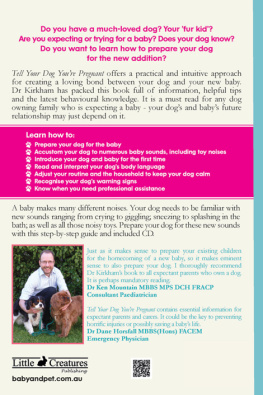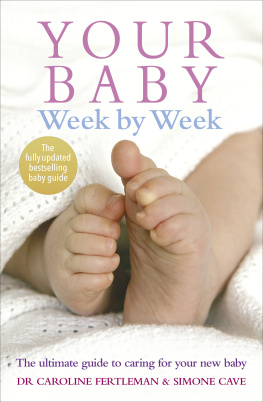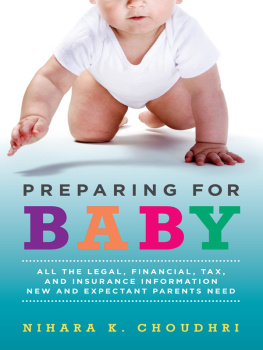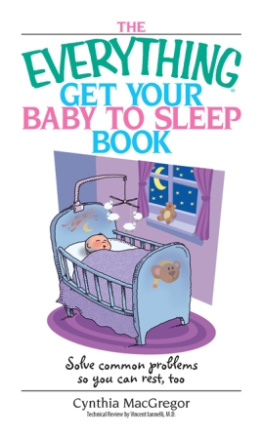
Acknowledgements
My first thanks go to my wife, Deb, who is a constant inspiration and support, and a source of practical advice and profound words of wisdom. Thank you also to my two beautiful daughters, Stella and April, who have shown me how rewarding and fulfilling a (human!) family can be and who generously supplied their baby sounds. I love you both very much. Special thanks go to my parents, Colin and Sonia, for their unconditional love, support, education and editorial input.
This book exists not only because of my stubbornness, but also, and most importantly, because many talented people helped and encouraged me along the way. I would like to thank Dr Robert Holmes and Dr Gabrielle Carter for inspiring and assisting me to pursue my dreams in the field of veterinary behavioural studies and Dr Nick Branson, Dr Debbie Calnon, Dr Caroline Perrin, Dr Diane van Rooy and Professor Paul McGreevy for their professional input.
Thank you also to Nic Redhouse, Leah Horsfall and Nan McNab for their editorial expertise and Graeme Kirkham for his professional advice and his patience with my difficult and repetitive questions. In particular, thank you to Prue Walstab for her vision and project design.

As a paediatrician, parent and dog owner I applaud Dr Kirkhams comprehensive, practical and well-organised approach to introducing a new baby to a resident dog. It is well known to paediatricians that children between the ages of two and five years may have some negative reactions to the homecoming of a new baby, e.g. more demanding behaviour, retrogression in toilet training, demanding to be fed by the bottle again, change in sleep patterns and so on. So, just as it makes sense to prepare your existing children for the homecoming of a new baby, so it makes eminent sense to prepare your dog also, because undoubtedly the dog considers itself one of the family, and the consequences, on rare occasions, can be more serious. I thoroughly recommend Dr Kirkhams book to all expectant parents who own a dog. It is perhaps mandatory reading.
Dr Ken Mountain MBBS MPS DCH FRACP
Consultant Paediatrician
Tell Your Dog Youre Pregnant contains essential information for expectant parents and carers. It provides clear explanations of how to best prepare your dog while enabling owners to make informed decisions to seek veterinary help early. This could be the key to preventing horrific injuries or possibly saving a babys life.
Dr Dane Horsfall MBBS(Hons) FACEM
Emergency Physician

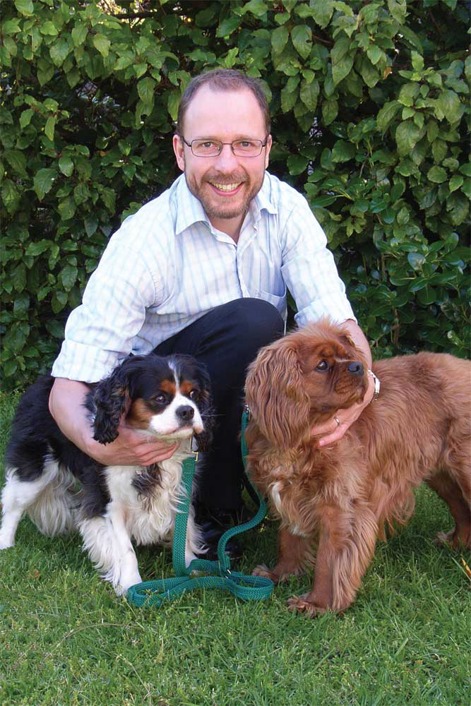
About the author
Dr Lewis Kirkham, a veterinarian with further qualifications in animal behaviour, has a lifelong fascination with pets and their interaction with their owners. Since graduating as a veterinarian from The University of Melbourne in Victoria, Australia, Dr Kirkham has worked in a variety of practices in both Australia and the United Kingdom.
In 2004, he founded Animal Behaviour Solutions, a company that provides private counselling and behavioural advice for pet owners. Through this company, Dr Kirkham has assisted numerous pets and their owners in the assessment and management of behaviour problems. He is also a consultant to local and international zoos and sanctuaries on exotic species behavioural problems.
Dr Kirkham regularly contributes to radio and online media regarding behavioural problems with pets. He has also contributed to The Australian newspaper and Dogs Life magazine and has been published in the Australian Veterinary Journal. He is a member of the Australian and New Zealand College of Veterinary Scientists as well as a chartered member of the Australia Veterinary Association. He is also a member of the American Veterinary Society of Animal Behavior.
The birth of his two daughters ignited his passion for educating expectant parents about the smooth transition from a child-free, dog- owning family to a larger family with a new baby. Dr Kirkhams work was initially published as What your pet can expect when youre expecting (2005), the first comprehensive resource for expectant families who own a dog or cat. This was re-released in 2012 by Little Creatures Publishing as Tell Your Dog Youre Pregnant: An essential guide for dog owners who are expecting a baby.
Currently Dr Kirkham divides his time between his family, private veterinary practice, companion and exotic animal behaviour referrals and online veterinary support.
Common myths and problems
Common myths exposed
The dog is jealous ...
Many dog owners claim the most common emotion displayed by their dog when a baby arrives is jealousy; the dog is put out by the newcomer. In fact, the dog is probably feeling anxious, not jealous. Much of this anxiety is associated with sudden changes to its routine. For this reason, it is important to start preparing your dog as soon as possible for your babys arrival. The longer lead-time you have to introduce changes to the household, the less disruption there will be when your baby comes home.
 | Start preparing your dog as soon
as possible for your babys arrival |
You should spend more time with the dog in preparation for the baby ...
Many expectant parents feel guilty that they will have less time with their dog when their baby arrives, so they try to increase the number of walks and the amount of attention they give their dog before the baby is born. They hope this will be stored in an attention bank which the dog can draw from once the baby arrives. Unfortunately, this can have the opposite effect; in addition to the new little person disrupting the household, the dog becomes more unsettled as the amount of attention they receive goes from unusually high to minimal overnight.
The dog will instantly love the baby ...
Aggression from dogs towards newborns is frightening. Not all dogs naturally love babies, or will just know that your baby is part of the family. At the same time, dogs generally do not perceive a baby as a threat. It is the changes within the household that usually cause alterations in a dogs behaviour.

Common problems
The dog is scared of the baby ...
Some dogs are worried by or even scared of babies. They do not like the sounds, smells and movements babies make, or they are unaccustomed to them. This book specifically details how to prepare your dog for a baby (without a baby actually being present) so the dog is less likely to be fearful when your baby does arrive. It discusses how to create good emotional associations with the baby, rather than fear. It also highlights the early warning signs that may indicate your dog is fearful of your baby, prompting you to seek immediate professional assistance.
Your dog notices a decrease in attention ...
Next page
